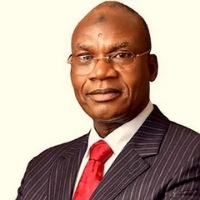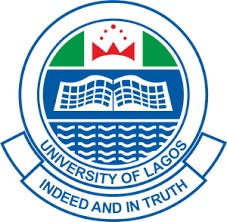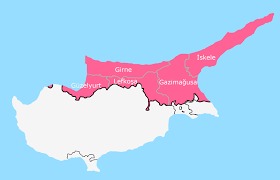Education
Nigeria Blacklists Reps Of Benin, Togo Universities

The Nigerian government has resolved to not to recognise University degree certificates from the Republics of Benin and Togo, from 2017 to date.
The Minister of Education Tahir Mammanm made the disclosure at a press conference to mark his first anniversary in office, in Abuja on Friday.
ALSO READ: Tinubu Is The Best Thing To Happened To The South-East In Decades – Ex-Lawmaker
Consequently, all degree certificates from Cotonou University issued between 2017 and the present have been rendered invalid.
The implications are that all personnel currently employed by Nigerian government with such certificates would be terminated immediately.
Mammanm informed the media that the resolutions were endorsed by a recent meeting of the federal executive council, presided over by President Bola Tinubu.
According to him, the termination of employees affects both the public and private sectors andrelate to counterfeit degree certificates acquired from the Republics of Benin and Togo.
He said, “One of the things we did in the course of the year was — remember when information broke out about some of our students going to neighbouring countries — some not even going at all — to obtain certificates.
“The ministry set up a committee to look into that; the committee came up with a detailed review; that review was sent to the federal executive council about a month ago, which approved some of the recommendations from the ministry.
“Now the recommendations will be implemented along with other ministries and agencies affected, including NYSC, Immigration.
“Because we have to take some major decisions here, some staff who are affected faced disciplinary measures, and that the whole unit went through some kind of review.
“But by and large, we can’t have in our midst people who procure fake certificates and to compete with our students who graduated from our universities and polytechnics through their sweat, some spent four, five, six, or more years going out to compete with people who procure certificates right here without going anywhere, for a lot of them.
“So what the FEC now approves is that, through the data, that NYSC has, about 21,684 students that are parading fake certificates from Benin Republic, obtained between 2019 to 2023.
“Togo is about 1,105. How did that happen? They simply attend schools, which are not recognised in those countries.
“Remember, this point is extremely important. The non-recognition itself is in those countries. They are not institutions recognised to offer degree programs in those countries.
“Instead, some of our parents, take their wards to these institutions, and of course there is no way we would recognise qualifications which are not recognised in those countries.
“In the case of Togo, we have three universities that are officially approved and licensed to offer degrees, and in Benin, there are about five of them.
“So anyone who didn’t attend these universities is parading a fake certificate.
“And from 2017, anybody who attended a university solely run in English is wasting his time because it’s not an approved university. That is their policy.
“But a lot of our countrymen went there — some didn’t go anyway; remember, these numbers are just what we have, a lot of them didn’t even bother to go to NYSC.
“The number may be more …. Some who attempted to but couldn’t succeed in the screening process disappeared into thin air.
“So in the final analysis, what the federal government approved is that the Secretary to the Government of the Federation, SGF, will issue a circular to all employers, whether public or private, to fish out anybody with a certificate from these institutions — that circular probably would have been out by now.
“And the Head of Service, has also been mandated to fish out from the public service anybody who is parading certificate from these institutions.
“So this is the decision of the federal government on this matter”.
Education
Students, Lecturers In Limbo As TSU Strike Drags On
As the indefinite strike at Taraba State University (TSU) continues, both students and lecturers have been caught in a standoff over unresolved issues between the state government, the University’s management, and the Academic Staff Union of Universities (ASUU).
The strike, which has led to the suspension of exams and left the campus in disarray, stems from long-standing disputes regarding the welfare of lecturers and critical institutional concerns.
Students at TSU, Jalingo, are facing growing uncertainty as the academic calendar remains halted amid the ongoing crisis.
READ MORE: Journalist Adedayo Oderinu Advises Women Against Having Many Children
The Chairperson of ASUU-TSU, Dr. Garba Joshua, disclosed that the strike commenced after a 30-day grace period lapsed without meaningful action from the state government and university authorities to address key demands.
“The unresolved grievances include the lack of a pension scheme, non-payment of salary arrears, failure to constitute a Governing Council, non-payment of Earned Academic Allowances, exclusion from minimum wage implementation, and inadequate funding as stipulated by the University’s founding law,” Dr. Joshua explained.
He added, “ASUU-TSU has consistently engaged with the government to resolve these pressing issues. However, the lack of commitment and action has left us with no choice but to take this step in defense of our members’ welfare, the integrity of the institution, and the future of higher education in Taraba State.”
The strike has left students in limbo, with many expressing frustration over their interrupted academic progress. Some were seen leaving campus with no indication of when classes or exams would resume.
One student, speaking on the condition of anonymity, said, “We are the ones paying the price for a crisis we didn’t create. It’s disheartening to see our education put on hold because of these unresolved issues.”
The impasse has sparked concern among parents and education stakeholders, who are calling for urgent intervention to resolve the crisis.
However, as of the latest update, no resolution has been reached, leaving the future of academic activities at TSU uncertain.
Students and lecturers alike are now waiting for the state government and university management to take decisive action to end the strike and restore normalcy to the institution.
Education
JUST IN: FG Dissolves Nnamdi Azikiwe University Governing Council, Removes VC
The Federal Government has dissolved the Governing Council of Nnamdi Azikiwe University, Awka, and removed its newly appointed Vice-Chancellor, Prof. Bernard Odoh, over alleged breaches of university laws and irregularities in his appointment.
This was announced on Wednesday by Folashade Boriowo, the Director of Press and Public Relations at the Federal Ministry of Education.
In a statement, the Ministry accused the Governing Council of failing to follow due process in the appointment of Prof. Odoh, resulting in widespread tension and unrest within the university community.
READ ALSO: Vinicius Jr. Honors Cameroonian Roots Ahead Of Brazil’s Clash With Uruguay
“The Federal Government has announced the dissolution of the Governing Council of Nnamdi Azikiwe University, Awka, Anambra State, following grave breaches of the laws governing the university and disregard for lawful directives from the Federal Ministry of Education,” the statement read.
The Federal Ministry of Education also revealed that the Council’s chairman had “unilaterally appointed a Vice-Chancellor who did not meet the minimum eligibility criteria for the position,” leading to the breakdown of law and order on campus.
The Academic Staff Union of Universities (ASUU) had earlier accused the Governing Council of misconduct and called for its dissolution.
The union alleged that the council’s actions undermined the institution’s integrity and violated established procedures.
Commenting on the government’s decision, the Minister of Education, Dr. Tunji Alausa, said urgent measures were necessary to restore stability to the university.
“The Honourable Minister of Education, Dr. Tunji Alausa, emphasized that urgent measures were needed to prevent further deterioration of the situation at Nnamdi Azikiwe University, as the illegal decisions taken by the Governing Council posed a significant risk of further destabilizing the institution,” the statement added.
The Ministry also announced plans to appoint an Acting Vice-Chancellor and constitute a new Governing Council for the university.
“In accordance with the university’s founding act, an Acting Vice-Chancellor will be appointed, and a new Governing Council for the university will be constituted as soon as possible to ensure proper governance and adherence to the law,” the statement concluded.
Education
Maida, Inuwa, Adeyanju, Alakija, Others To Speak At AfriTECH 4.0

The organizers of Africa Tech Alliance Forum [AfriTECH 4.0] have announced the distinguished lineup of speakers for this year’s Forum themed: “Leapfrogging Digital Transformation for Future of Africa’s Economy”.
Scheduled to hold on Thursday, November 07, 2024 at Oriental Hotels, Lekki, Lagos, Nigeria, AfriTECH 4.0 [https://africatechallianceforum.africa/] will bring together leading voices in technology, telecommunications, ecommerce, software, finance, emerging technologies and government to explore key innovations and challenges shaping Africa’s digital transformation.
AfriTECH has become one of Africa’s most anticipated technology events, and the 2024 edition will feature a stellar lineup of industry experts, innovators, and policymakers who will provide insights into how emerging technologies are propelling Africa’s digital economy.
Special Guests:
Dr. Aminu Maida, a distinguished leader in telecommunications and digital transformation, serves as the Executive Vice Chairman of the Nigerian Communications Commission (NCC).
With over two decades of experience in the ICT sector, Maida has become a pivotal figure in driving Nigeria’s digital economy, overseeing regulatory frameworks and initiatives that foster innovation, investment, and inclusivity in Nigeria’s telecom industry.
Kashifu Inuwa Abdullahi, CCIE, is a transformative leader in Nigeria’s technology landscape, currently serving as the Director General of the National Information Technology Development Agency (NITDA).
Under his guidance, NITDA has driven impactful initiatives supporting Nigeria’s digital economy, fostering innovation, digital skills development, and creating an enabling environment for tech startups and entrepreneurship.
He will deliver the keynote address at AfriTECH 4.0.
Professor Ibrahim Adepoju Adeyanju is the CEO of Galaxy Backbone, a key government-owned technology and digital infrastructure company. Under his leadership, Galaxy Backbone focuses on strengthening Nigeria’s digital ecosystem by providing secure and innovative ICT infrastructure to government agencies and businesses, supporting national development and e-governance initiatives.
Biram Fall, the Regional Managing Director, QNET, a leading e-commerce-based direct selling company.
In his role, Mr. Fall oversees QNET’s operations and growth strategies across several markets, focusing on enhancing regional reach and ensuring the company aligns with local business needs.
Known for his expertise in direct-selling and his commitment to sustainable business practices, Fall has been instrumental in expanding QNET’s footprint in Africa and other emerging markets.
Ebehijie Momoh is a renowned financial services leader with over 20 years of experience in banking and payment technology, currently serving as CEO of AfrigoPay Financial Services Limited, where she leads the company’s mission to provide innovative payment solutions across Africa.
With a background in financial services and a deep understanding of digital payments, Momoh brings extensive experience to her role, focusing on transforming the financial landscape through accessible, secure, and efficient payment systems.
Her leadership emphasizes financial inclusion, driving AfrigoPay’s efforts to reach underserved communities and promote economic empowerment across the continent.
Dr. Muhammed Sirajo Aliyu is a visionary leader in Nigeria’s information technology sector. He is the incumbent President of the Nigeria Computer Society (NCS), the foremost association of IT professionals in Nigeria.
With an extensive background in computer science, IT governance, and digital innovation, Dr. Aliyu brings over 25 years of experience to his role, where he champions the advancement of technology and professional development within Nigeria’s IT ecosystem.
Dr. Temitope Alakija, a renowned academic and statistician, is a Senior Lecturer in the Department of Statistics at Yaba College of Technology [Yabatech] Lagos. With a deep expertise in data science, statistical analysis, and quantitative research, Dr. Alakija is dedicated to advancing the field of statistics and training future leaders in data-driven decision-making.
Holding a PhD in statistics and with numerous publications, Dr. Alakija’s research contributions have significantly influenced both academia and industry, particularly within Africa. Her commitment to academic excellence and her role in fostering a data-literate society make her a highly respected figure in the statistical community.
Adesola Akinsanya – President, Nigeria Internet Registration Association (NiRA). Akinsanya brings decades of expertise to his role, where he advocates for technological innovation, professional growth, and policy advancement in Nigeria’s IT landscape..
Engr. Gbenga Adebayo, Chairman, Association of Licensed Telecommunications Operators of Nigeria (ALTON). Engr. Adebayo is a prominent figure in Nigeria’s telecommunications industry, with over 25 years of experience in telecom and ICT. He is known for his advocacy for industry development, regulatory reform, and the provision of accessible telecommunications services across Nigeria.
Tony Izuagbe Emoekpere – President, Association of Telecommunications Companies of Nigeria (ATCON). With an extensive background in telecom management, digital strategy, and regulatory advocacy, Emoekpere is dedicated to advancing Nigeria’s telecom industry and fostering an environment that promotes innovation, investment, and inclusivity.
Key Speakers for AfriTECH 4.0:
Engineer Ikechukwu Nnamani – CEO, Digital Realty (Nigeria). In his keynote presentation at AfriTECH 4.0, Engr. Nnamani is expected to share his expertise on building resilient telecommunications infrastructure to support Africa’s digital future.
For over 16 years under his leadership the Digital Realty datacenter in Lagos is rated the most interconnected facility in the West African sub-region being the number 1 peering point for the region and boosting all submarine cables in the region, long distance providers, metro fiber providers, mobile services providers, fixed services providers, OTT providers, Internet Exchange, VAS providers, and global Tier1 service providers, amongst others.
Other outstanding personalities confirmed as speakers include – Dr. Obadare Peter Adewale, Chief Visionary Officer, Digital Encode Limited; Mr. Emmanuel Amos, Founder – Programos Foundation/InnovationBed Africa; Chukwuebuka Ume-Ezeoke, Chief Technology Officer at CED Technologies; Dr. Oluseyi Akindeinde, Founder, Hyperspace Technologies; Happiness Obioha, Managing Director, Tecom Concepts Limited; Chukwuemeka Mbaebie, Convener, Lagos Blockchain Week; Akeem Ajisafe, Managing Director, Transblue Limited; Chika Nwosu, Managing Director, PalmPay; Jude Ozinegbe, Founder/Convener at Cyberchain; Mohammed Rudman, CEO, Internet Exchange Point of Nigeria [IXPN]; Dr. Ayotunde Coker, CEO Open Access Data Centres (OADC); Kehinde Ogundare, country manager, ZOHO [Nigeria]; Ayodeji Ogunmola, Director, Products Management at Northsnow Ltd; Oluwakayode Durodola, founder, Otuntech Limited; Lovelyn Okafor, Country Head, Nigeria at Newmark; Olaniyi Ibraheem, Business Development Manager (Africa) at UBankConnect; Adedamola Bowale, Co-founder & Technical Lead at Avancee Pinnacle, and Moniade Adeniyi, Product Innovation & Business Growth Strategist, Northsnow Ltd.
Meanwhile, innovationbed Africa is set to host “Startup Showcase” at AfriTECH, a session dedicating to startup finalists for this year’s United Nations World Summit Awards. Discussants include – David-Bobola Ojoawo, the Producer for Compas.AI; Stephen Adeyemo of Expertplug; Siro Collins, CEO of Advanced Engineering Center (AEC), WSA Winner 2023; Elijah Moses, Producer for VerionX; Rasheed Aliu Producer for LOOPBOX; Musami Umar Musam, founder of RollMal; David Ezeonyekwere, the founder of CheapMarketDeal, and Sule Wisdom David, the founder of CyclexAfrica.
QNET is the gold sponsor of AfriTECH 40. Silver Sponsors – Galaxy Backbone, Digital Realty, Digital Encode Ltd. Bronze Sponsors – CED Technologies, AfriGoPay, Tecom, Northsnow UK, Hyperspace Technologies, Palmpay, OADC.
Ecosystem Partners: NCC, NITDA,, InnovationBed Africa, ALTON, ATCON, NCS, IXPN, NiRA, Lagos Blockchain Week, Newmark Group, all are supporting AfriTECH 4.0.
Media Partners include; Techeconomy, NigeriaCommunicationsWeek, ITPulse, Ravenews, TechTrends.Africa, TechBuild.Africa, GrassRoots, DigiVation Network, TechLifewithUgo, BusinessMetrics, BusinessRemarks, SwiftReporters, TechTV, Africa Hyperscalers Media, CyberEra, ITRealms, DigitalTimes, TechnologyMirror, TechandBizNews, ITNewsNigeria.
“AfriTECH 4.0 will also feature interactive panel discussions, workshops, and exhibitions that will explore other critical topics such as artificial intelligence (AI), blockchain, fintech, smart cities, and sustainable innovation”, said Chike Onwuegbuchi, co-convener of AfriTECH. “We are grateful to the sponsors and partners”.
“Attendees will have the opportunity to engage directly with the speakers, as well as network with other industry leaders, innovators, and investors”, he added.
Participation
Participation is free, but you are required to pre-register: https://bit.ly/3ZPdi88
























